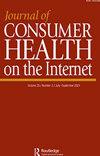Quality and Readability of Online Information on Cerebral Palsy
IF 0.7
Q4 PUBLIC, ENVIRONMENTAL & OCCUPATIONAL HEALTH
引用次数: 0
Abstract
Abstract Objective The aim of this study was to investigate the readability and reliability of online content related to cerebral palsy (CP) and to classify sites that contain quality and readable information. Method On April 30, 2022, the term “cerebral palsy” was searched on the Google search engine. The categories, quality, content, readability, Alexa rank values, and backlink numbers of the sites were analyzed. The Journal of American Medical Association score and HONcode seal were used for quality assessment, and the Flesch–Kincaid grade (FKG) and the Simple Measure of Gobbledygook (SMOG) were used for readability assessment. Results Of the 155 sites, 46 had high-quality content. The quality of health portal and scientific publishing sites appeared to be high. The top 10 sites were determined to be of significantly higher quality (p = .017) than the remaining sites. The average readability values of the sites were not at the recommended level. Conclusion Despite the abundance of information available on CP-related websites, most of them were not of high quality. Additionally, many websites did not reach the recommended readability levels. Revision of existing online content related to CP and production of new high-quality content in line with readability recommendations is urgently required.脑瘫在线信息的质量与可读性
摘要目的探讨脑瘫(CP)相关在线内容的可读性和可靠性,并对包含高质量和可读信息的网站进行分类。方法于2022年4月30日在谷歌搜索引擎上搜索“脑瘫”一词。分析了网站的类别、质量、内容、可读性、Alexa排名值和反向链接数。质量评价采用美国医学协会杂志评分和HONcode印章,可读性评价采用Flesch-Kincaid分级(FKG)和Simple Measure of Gobbledygook (SMOG)。结果155个网站中,46个网站内容优质。卫生门户网站和科学出版网站的质量似乎很高。前10个站点的质量明显高于其他站点(p = 0.017)。网站的平均可读性值没有达到建议的水平。结论尽管cp相关网站提供了大量的信息,但大多数信息质量不高。此外,许多网站没有达到推荐的可读性水平。迫切需要修订与CP相关的现有在线内容,并根据可读性建议制作新的高质量内容。
本文章由计算机程序翻译,如有差异,请以英文原文为准。
求助全文
约1分钟内获得全文
求助全文
来源期刊

Journal of Consumer Health on the Internet
PUBLIC, ENVIRONMENTAL & OCCUPATIONAL HEALTH-
CiteScore
1.30
自引率
12.50%
发文量
32
期刊介绍:
The Journal of Consumer Health on the Internet is the only professional peer-reviewed journal devoted to locating consumer health information via the Internet. In this journal librarians and health information providers describe programs and services aimed at helping patients and the general public find the health information they need. From the Editor: "Studies have shown that health information is one of the major reasons that people worldwide access the Internet. As the amount of health information on the Web increases exponentially, it becomes critical that librarians-including public and medical librarians-be knowledgeable about what is available online and be able to direct users to reliable, accurate, quality information."
 求助内容:
求助内容: 应助结果提醒方式:
应助结果提醒方式:


